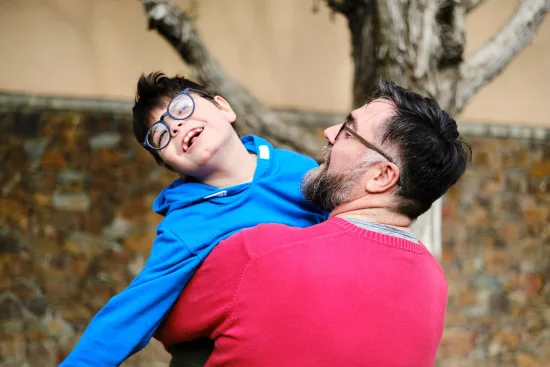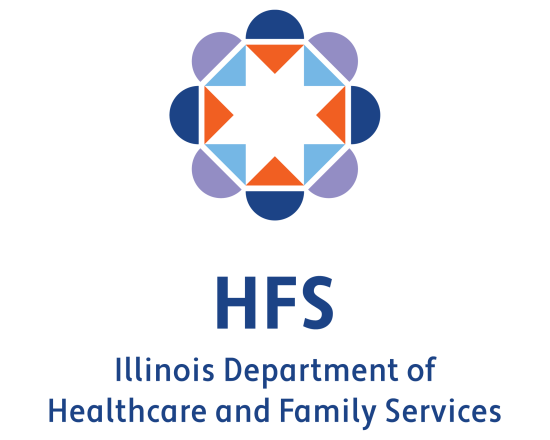Share Your Feedback to Allow CNAs as Paid Family Caregivers

Families have until Jan. 30, 2025, to share their input on a state plan amendment allowing CNAs to become paid family caregivers.
Families can now share their feedback to allow more parents/legally responsible adults (LRAs) to become paid caregivers for their children at home.
The public comment period is currently open for a state plan amendment allowing parents/LRAs to become paid caregivers if they are a certified nursing assistant (CNA) and employed by a nursing agency.
Currently, parents/LRAs are paid for providing skilled nursing services to their children if they hold an active registered nurse (RN) or licensed practical nurse (LPN) license. This rule applies to parents/LRAs of all children approved for Home Care Program services, regardless of the child’s age.
Allowing parents and caregivers who are CNAs to become paid caregivers is an important step in strengthening support for families of individuals who need in-home shift nursing.
This change requires an amendment to the Medicaid Home and Community-Based Services Waiver for Those Who Are Medically Fragile, Technology Dependent (MFTD waiver). It also requires the creation of a new state plan amendment. Both approvals must be in place to allow for this change.
The public comment period for the new state plan amendment is now open until Jan. 30. You can read the public comment notice for the state plan amendment on the Illinois Department of Healthcare and Family Services (HFS) website.
Here is how you can review the amendment and share your feedback.
Review the Amendment
- Visit the HFS website to download and/or print a copy of the proposed state plan amendment.
- Email HFS.BPPC@illinois.gov to request a digital copy of the proposed state plan amendment.
- Review a hard copy of the proposed state plan amendment at HFS’ offices at:
- 201 South Grand Ave. E.,
Springfield, IL 62763 - 401 S. Clinton
Chicago, IL 60607
- 201 South Grand Ave. E.,
Springfield, IL 62763 - 401 S. Clinton
Chicago, IL 60607
- 201 South Grand Ave. E.,
Share Your Feedback
HFS is accepting public input on the proposed state plan amendment through Jan. 30, 2025.
You can share your feedback in two ways:
- Email your input to HFS.BPPC@illinois.gov.
- Mail your written input to the Illinois Department of Healthcare and Family Services, Attention: Bureau of Program and Policy Coordination, 201 South Grand Ave. E., 2nd floor, Springfield, IL 62763
This public comment process is one of the best ways you can make your voice heard.
Next Steps
In addition to the new state plan amendment, we have worked closely with HFS to incorporate this new rule into the MFTD waiver. This waiver amendment is currently under federal review for approval.
There is currently no set timeline for the state plan amendment and the MFTD waiver amendment to be approved.
Once approved, we will notify our Division of Specialized Care for Children (DSCC) participant families as quickly as possible.
If you have any questions, please contact your DSCC Care Coordinator at (800) 322-3722.
Podcast Highlights DSCC’s Role in Policy Solutions for Children with Complex Care Needs During Emergencies

The MCH Bridges podcast shares the story of how DSCC partnered with parent advocates and state agencies to allow generators to be an MFTD waiver benefit
In August 2020, a powerful windstorm called a derecho struck Illinois.
The storm produced about 15 tornadoes in the Chicagoland area and caused widespread power outages. Many people were without power for multiple days.
After the storm, parent advocate Susan Agrawal compiled feedback from Home Care Program families about how the power loss affected their children and loved ones with complex medical needs. She then shared this feedback with the Division of Specialized Care for Children (DSCC).
DSCC operates the Home Care Program on behalf of the Illinois Department of Healthcare and Family Services (HFS). The Home Care Program serves individuals who need in-home nursing to safely live at home.
Many of these individuals are enrolled in the Medicaid Home and Community-Based Services Waiver for Those Who Are Medically Fragile and Technology Dependent (MFTD waiver). These individuals often have tracheostomies, ventilators, gastrostomy tubes and other medical technology that depends on electricity.
The feedback Agrawal shared showed that many Home Care families wanted the ability to use MFTD waiver funds to pay for power generators for their homes.
DSCC took this feedback, did research and worked with HFS to pursue an amendment to the MFTD waiver to allow waiver funds to cover the cost of generators.
A recent episode of the MCH Bridges podcast tells the story of how this new waiver benefit became available for families. The podcast is from the Association of Maternal and Child Health Programs (AMCHP).
Dr. Molly Hofmann, DSCC’s Director of Care Coordination, Systems Development and Education, co-hosted the episode called “Generating Policy Solutions to Protect Children with Complex Health Care Needs During Emergencies.”
The episode highlights the importance of preparedness, especially in the face of natural disasters or power outages that can severely affect the care of children who are medically fragile and technology dependent.
It features the following DSCC team members and partners:
- Stephanie Leach, DSCC’s Associate Director of Systems of Care
- Courtney Kerfoot, DSCC’s Integrated Program Support Specialist
- Susan Agrawal, parent advocate, Director of the Family-to-Family Health Information Center at The Arc of Illinois and the founder and leader of MFTD Waiver Families in Illinois
- Pam Winsel of the Illinois Department of Healthcare and Family Services
Thank you to AMCHP for highlighting our efforts and partnerships to ensure children with complex medical needs have the life-saving technology they need in emergency situations!
You can learn more about how the MFTD waiver pays for home generators and other important benefits for Home Care families on our Waiver Services for Home Care Families page.
Share Your Feedback on Key MFTD Waiver Updates to Strengthen Support for Families

Families have through Sept. 28, 2024, to share input on waiver amendments allowing CNAs to become paid family caregivers and nursing rate increases.
Families have an opportunity to share feedback on several significant updates to the Medicaid Home and Community-Based Services Waiver for Those Who Are Medically Fragile, Technology Dependent (MFTD waiver).
The Illinois Department of Healthcare and Family Services (HFS) is the Medicaid agency responsible for the MFTD waiver. Many families in the Home Care Program have children who receive services through this waiver.
HFS is currently seeking approval from the federal Centers for Medicare and Medicaid Services (CMS) for waiver amendments that will:
- Allow parents who are certified nursing assistants (CNAs) to be paid family caregivers
- Increase rates for in-home nurses and CNA services
Read below for more details about these amendments and how to share your input.
CNAs as Paid Family Caregivers
Plans are underway to allow parents/legally responsible adults (LRAs) to become paid caregivers if they are a CNA and employed through a nursing agency.
Currently, parents/LRAs are paid for providing skilled nursing services to their children if they hold an active registered nurse (RN) or licensed practical nurse (LPN) license. This rule applies to parents/LRAs of all children approved for Home Care services, regardless of the child’s age. (Read more about our efforts to make paid licensed family caregivers a permanent benefit.)
Allowing parents and caregivers who are CNAs to become paid caregivers is an important step in strengthening our support for families of individuals who need in-home shift nursing.
This update would give more parents/LRAs the opportunity to earn payment for the caregiving they provide their children at home.
This change requires an amendment to the MFTD waiver as well as the creation of a new state plan amendment.
Nursing Rate Increase
HFS is also proposing a 7 percent rate increase for in-home nurses and CNA services to take effect on Jan. 1, 2025.
This rate increase would affect:
- RN, LPN and CNA care
- In-home and facility-based respite care
- Nurse training rates
The proposed rates are as follows:
- RN, $57.78 per hour
- LPN, $48.15 per hour
- CNA, $32.10 per hour
We hope this rate increase can help make more high-quality nursing options available for our participant families.
Transitional Care Services provided outside the home (not an MFTD waiver service) is expected to have a rate increase from $950 to $1,300 a day. This increase would also take effect on Jan. 1, 2025.
Other Key Updates in the Amendment Include:
- Adds adaptive equipment and assistive technology as new services.
- Makes pest control a post-approval process. This change means families will not need to receive prior approval for pest control services.
- Makes the Division of Specialized Care for Children (DSCC) the entity responsible for the prior approval for home accessibility modifications, vehicle modifications, medical equipment operating expenses, adaptive equipment, placement maintenance counseling and assistive technology.
- Removes the requirement of two bids if the cost exceeds $2,000 for waiver services. This change is necessary to help increase access to services.
Share Your Feedback
The public comment period for these proposed waiver amendments is now open.
To review the full list of proposed waiver updates, you can:
- Review a hard copy at HFS’ offices at:
- 201 South Grand Ave. E.,
Springfield, IL 62763 - 401 S. Clinton
Chicago, IL 60607
- 201 South Grand Ave. E.,
The deadline to provide feedback is Sept 28, 2024.
You can share your feedback in two ways:
- Via email to HFS.HCBSWaiver@illinois.gov
- Via mail to the Illinois Department of Healthcare and Family Services, Attention: Waiver Operations Management, 201 South Grand Ave. E., 2FL, Springfield, IL 62763
This public comment process is one of the best ways you can have your voice heard.
HFS will send your comments to the federal CMS as part of the waiver approval process.
If you have questions, please contact HFS’s Waiver Operations Management Unit at (217) 524-4148 or (844) 528-8444.


